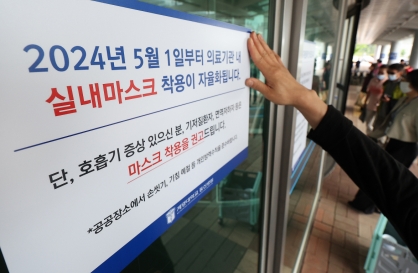Eximbank backs projects to support Tanzania, Uganda
By Korea HeraldPublished : Oct. 16, 2012 - 19:32
The Export-Import Bank of Korea said Tuesday it agreed to provide $50 million for an irrigation project in Tanzania and $26.8 million for a vocational training program in Uganda as part of its efforts to support African economies.
Eximbank chief executive Kim Yong-hwan inked the agreements with finance ministers William Mgimwa of Tanzania and Maria Kiwanuka of Uganda on the sidelines of a biennial ministerial meeting for economic cooperation between Korea and Africa.
The four-day Korea Africa Economic Cooperation Ministerial Conference will run through Thursday at Seoul’s Shilla Hotel under the theme “Inclusive Growth.”
Eximbank chief executive Kim Yong-hwan inked the agreements with finance ministers William Mgimwa of Tanzania and Maria Kiwanuka of Uganda on the sidelines of a biennial ministerial meeting for economic cooperation between Korea and Africa.
The four-day Korea Africa Economic Cooperation Ministerial Conference will run through Thursday at Seoul’s Shilla Hotel under the theme “Inclusive Growth.”

Eximbank will financially sponsor the project to improve the irrigation system for agricultural use on the Tanzanian island of Zanzibar. Once the project is completed in 2015, triple cropping ― harvesting three crops in one year off the same field ― will be possible on the 2,000-hectare area, raising the country’s agricultural productivity and helping reduce poverty in the rural region.
With the money going to Uganda, Eximbank, together with the African Development Bank, plans to build technical training centers in five different regions, supply educational equipment, and support consulting for education and training.
Based on Korea’s successful vocational training experience, the program is expected to contribute towards fostering Uganda’s technical manpower and industrial development, Eximbank said.
“Africa is seeing an increasing inflow of foreign capital and fewer restraints on economic development thanks to surging demand for natural resource development and infrastructure construction; it is rising as the land of opportunity for Korean businesses,” Kim said.
“In a bid to join the international community’s efforts to eradicate poverty in Africa, support inclusive growth with the continent and back Korean companies’ exploration of new markets, Eximbank will continue to send 20 percent of (Korea’s) economic development cooperation funds to Africa.”
Korea has extended some 8.42 trillion won ($7.6 billion) worth of EDCF, or long-term, low-interest loans, to assist underdeveloped economies for 282 projects in 50 countries as of September.
About one-fifth of it, or $1.5 billion, went to support 45 projects in 16 African nations.
Africa is the second-largest recipient, by continent, of Korea’s EDCF after Asia.
Eximbank has increased the amount of EDCF for Africa by at least 30 percent each year for the past five years and plans to increase it further.
By Kim So-hyun (sophie@heraldcorp.com)
-
Articles by Korea Herald




![[Music in drama] Rekindle a love that slipped through your fingers](http://res.heraldm.com/phpwas/restmb_idxmake.php?idx=644&simg=/content/image/2024/05/01/20240501050484_0.jpg&u=20240501151646)

![[New faces of Assembly] Architect behind ‘audacious initiative’ believes in denuclearized North Korea](http://res.heraldm.com/phpwas/restmb_idxmake.php?idx=644&simg=/content/image/2024/05/01/20240501050627_0.jpg&u=20240502093000)



![[KH Explains] Will alternative trading platform shake up Korean stock market?](http://res.heraldm.com/phpwas/restmb_idxmake.php?idx=644&simg=/content/image/2024/05/01/20240501050557_0.jpg&u=20240501161906)








![[Today’s K-pop] Stray Kids go gold in US with ‘Maniac’](http://res.heraldm.com/phpwas/restmb_idxmake.php?idx=642&simg=/content/image/2024/05/02/20240502050771_0.jpg&u=)